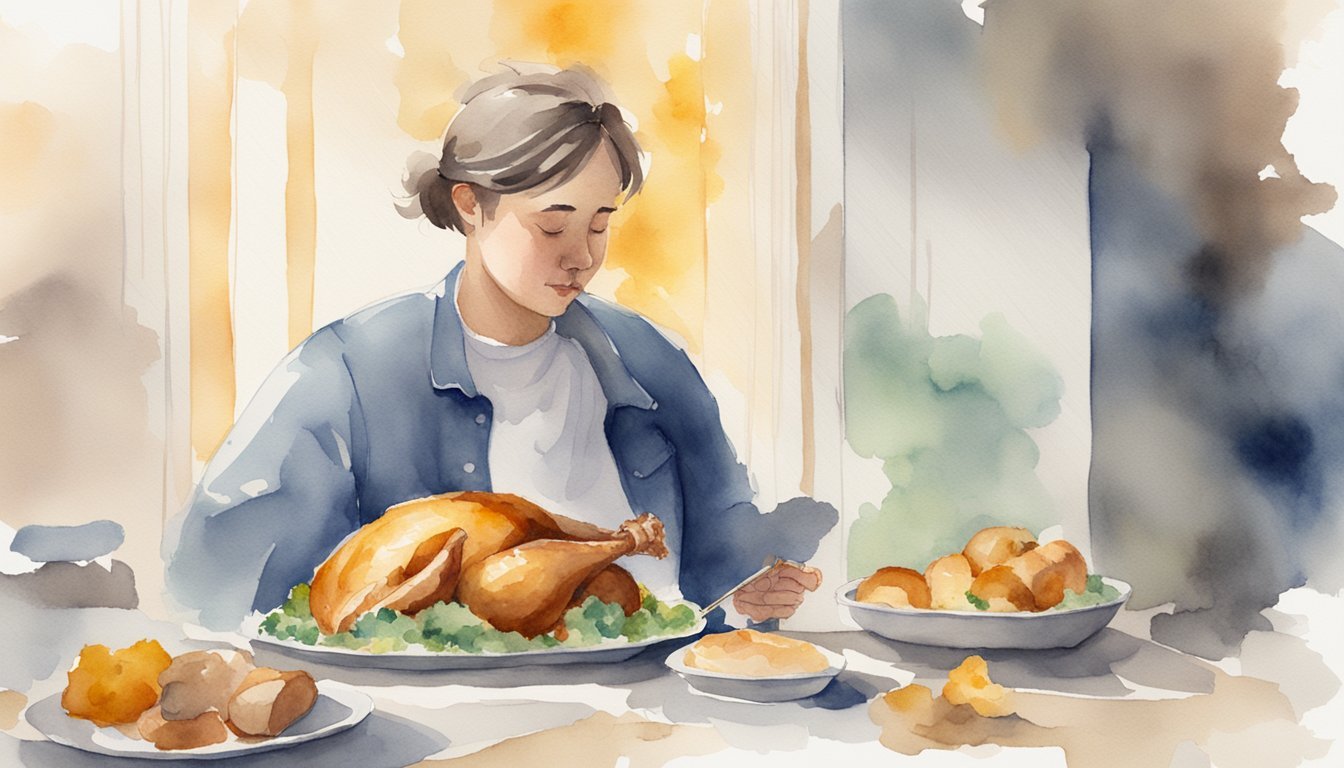The Science Behind Turkey and Sleepiness
The connection between turkey consumption and increased sleepiness has often been attributed to tryptophan, but the full story involves various nutritional factors and their effects on sleep.
Tryptophan and Its Role in Sleep
Tryptophan is an essential amino acid that plays a vital role in producing serotonin, a neurotransmitter that can be converted into the sleep-regulating hormone melatonin in the brain. As the body cannot synthesize tryptophan on its own, it must be obtained from food.
Turkey Vs. Other Foods in Tryptophan Content
While turkey is known for its tryptophan content, many other foods contain this amino acid at comparable or higher levels. For example, chicken, fish, and cheese are also rich in tryptophan, challenging the idea that turkey is singularly responsible for post-meal drowsiness.
How Serotonin and Melatonin Affect Sleep
Serotonin serves as a precursor to melatonin, the hormone directly responsible for regulating the sleep-wake cycle. Elevated levels of melatonin signal to the body that it is time to rest, highlighting the indirect but significant role that tryptophan plays in sleep.
The Impact of Protein and Carbohydrates on Sleep
Protein-rich foods like turkey can lead to increased production of insulin, which in turn affects the absorption of amino acids and the synthesis of serotonin. Meanwhile, a high intake of carbohydrates can cause a spike in blood sugar, followed by a drop that may bring on feelings of fatigue. Therefore, the macronutrient balance of a meal can influence sleepiness.
Lifestyle and Dietary Factors Influencing Post-Meal Sleepiness

Understanding how certain lifestyle and dietary choices impact energy levels can reveal why some people feel the urge to nap after a meal, particularly during festive occasions like Thanksgiving.
The Effect of Overeating on Energy Levels
When individuals consume more food than usual, as often occurs during a Thanksgiving dinner, the body must work harder to digest the large quantities of food, which can lead to a feeling of fatigue or sleepiness. Overeating, especially foods high in fat and calories such as mashed potatoes and stuffing, requires the body to divert more blood to the digestive system, reducing overall energy and potentially increasing the desire for rest.
Alcohol and Its Sedative Properties During Meals
The inclusion of alcohol, such as champagne or beer, during celebratory meals adds to the sedative effect. Alcohol possesses sedative properties that can promote a state of drowsiness. When consumed with a large meal, the combined effects intensify the sensation of sleepiness.
Influence of Desserts and Sugary Foods on Sleepiness
Desserts and other high-sugar foods like pumpkin pie and cranberry sauce cause a rapid increase in blood sugar levels, often followed by a sharp decline that can leave individuals feeling tired. This fluctuation in blood sugar levels can affect sleep regulation, leading to sleepiness after the consumption of sugary treats.
Balancing Diet to Maintain Alertness and Focus
To maintain higher energy levels and focus, incorporating protein-rich foods such as turkey—contrary to the belief that it induces sleepiness—chicken, beef, fish, and plant-based options like soybeans, peanuts, and seeds into one’s diet can be beneficial. These foods can help stabilize blood sugar and provide sustained energy, reducing the likelihood of experiencing post-meal fatigue. Additionally, smaller portions and moderation, combined with physical activity such as a walk after eating, can effectively support digestion and combat the post-meal energy dip.

